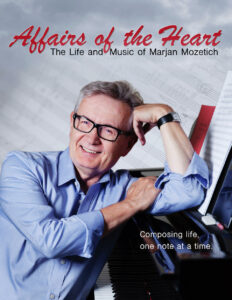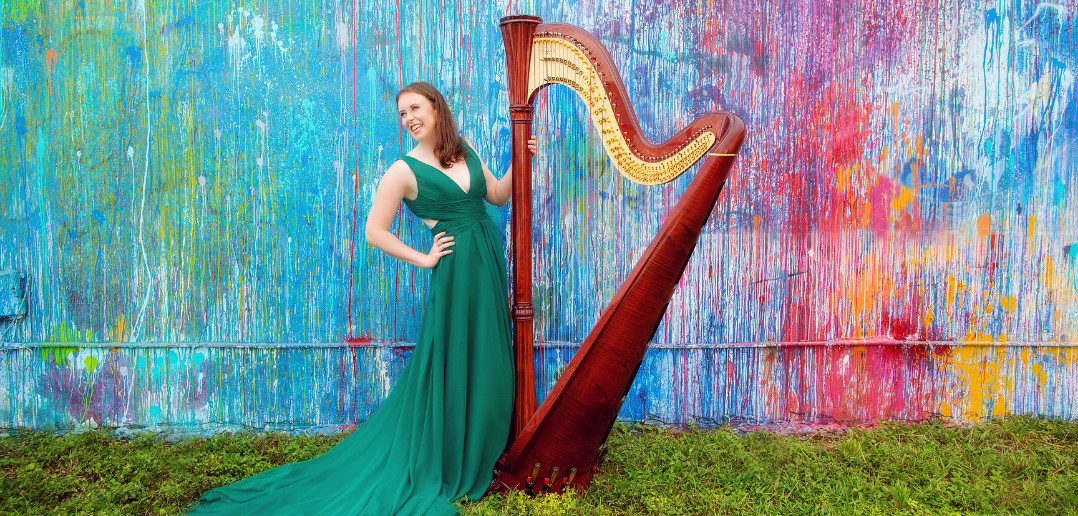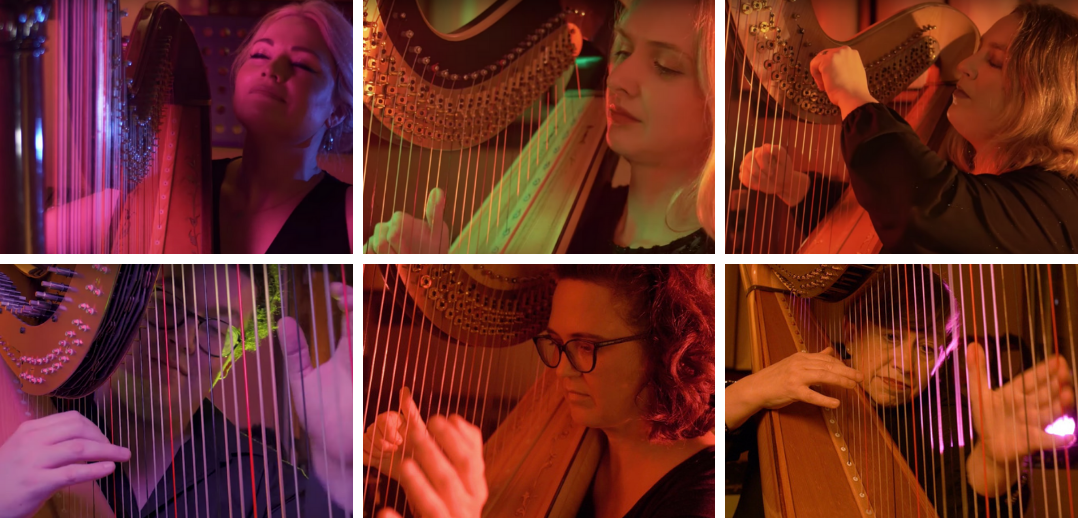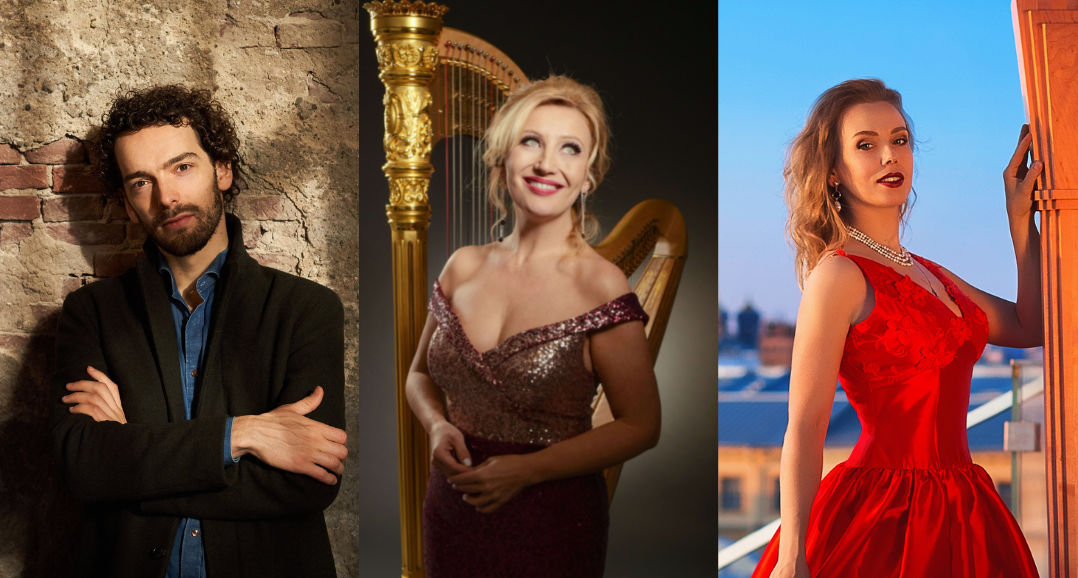Harpists Erica Goodman, Lori Gemmell, and Angela Schwarzkopf are featured panelists at an upcoming screening of Canadian filmmaker Jamie Day Fleck’s new documentary, Affairs of the Heart: The Life and Music of Marjan Mozetich. The documentary highlights some of the Juno-award-winning composer’s works for harp. A virtual screening of Fleck’s documentary will be held March 21 at 7:00 p.m. EST. Following the screening, Fleck will moderate a discussion on Mozetich’s works for harp with Goodman, Gemmell, and Schwarzkopf, all of whom have premiered or performed his works. Mozetich will participate in the discussion and offer insight into his harp writing. We reached out to Fleck and Goodman to learn more about the upcoming event.
What inspired this documentary?
Fleck: I heard Marjan Mozetich’s violin concerto Affairs of the Heart on CBC Radio in Toronto. It was a such an intimate and passionate piece of music that I was instantly captivated. I waited until the end of the piece to hear who the composer was, expecting some big name like Claude Debussy or Maurice Ravel. And then the announcer said, “Marjan Mozetich,” and I thought, “Who is that?” I looked him up online and found he was alive and lived in Kingston, Ontario. I had never heard of him! My father is a classical pianist and composer so I felt I was pretty well-versed in the classical music world, but here was an amazing Canadian composer I had never heard of. My other films dealt with artistic process and I had the idea to look at the interior world of a composer, so when I kept hearing Marjan Mozetich’s music on CBC, I felt he would be good fit if he was willing.

“Mozetich’s music is described as life-affirming,” Fleck says.
What drew you to the works of Marjan Mozetich?
Fleck: Marjan Mozetich’s music is melodic and easy for the common listener to understand and relate to. His purpose as a composer is to create beautiful music that can be appreciated by common folk, not just musicians or musical scholars. That really spoke to me because I think art is for everyone. I also love how honest and passionate his music is. Many people have described it as “life-affirming”.
Goodman: I met Mozetich in the 1970s through a violist, Doug Perry, with whom I was playing in a flute, harp, and viola ensemble. He was Mozetich’s roommate while studying at the University of Toronto and appears in in the film. One day, he brought to a rehearsal a piece Mozetich had written for our instrumentation. It was very avant garde, nothing like the style to which Mozetich evolved. We never learned it. Later, another flutist with whom I have had a long association, Robert Aitken, was approached by Mozetich about writing a piece for flute and harp. Aitken was always supportive of young composers and through his New Music Concerts Ensemble, gave many young Canadian composers a break and introduced many world class ones to Canadian audiences. By this time, Mozetich was on our radar and we decided to give him a chance. What resulted was the wonderful Sonata in Three Movements, which was an early work in Mozetich’s newly discovered “minimalist-romantic” style.
Lori Gemmell’s performance of Song of Nymphs is featured in this documentary. What is the significance of this piece?
Erica, you commissioned several of Mozetich’s works. What was that process like?
Goodman: Mozetich loves the harp and is always pleased to include it in his works. We became good friends as we discussed the harp in great detail during the editing of his works. He was always precise about his vision but would often change his mind on small details after his pieces were completed. After the flute and harp sonata, he was commissioned by a string ensemble to write a piece. He chose to create El Dorado which is a mini harp concerto for harp and strings. It is heavily minimalistic with the harp appearing and disappearing in undulating waves throughout the piece. He and I discussed the possibility of a solo harp piece, and we were able to secure a grant from the Canadian government for him to write Songs of Nymphs. I was fortunate to have the opportunity to record these works and other harpists started to become enamored with his music. Through the years, Mozetich’s music has become less minimalistic and more expressive, as shown in Goodbye My Friend, a piece he wrote for my trio.











